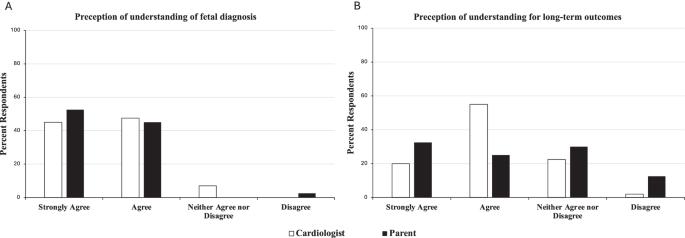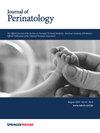Prenatal counseling for heart disease: Perception of understanding and communication gaps
IF 2.4
3区 医学
Q2 OBSTETRICS & GYNECOLOGY
引用次数: 0
Abstract
Research on parental understanding following prenatal counseling for congenital heart disease (CHD) is limited. We aimed to evaluate parental knowledge of their fetus’ CHD diagnosis and congruence between physician’s and parent’s assessments of parental understanding. Paired surveys of pediatric cardiologists and parents of fetuses requiring neonatal heart surgery assessed parental knowledge and perceived understanding of diagnosis, treatment and complications. Gwet’s agreement coefficients (GAC) were used to examine congruence. There was good congruence between 40 participating parents and cardiologists regarding knowledge of the diagnosis (GAC 0.89), need for neonatal surgery (GAC 0.81), need for further surgeries and lifelong care (GAC 0.66 and 0.65). While cardiologists perceived parents understood risk of mortality and neurodevelopmental outcomes, parental knowledge was poor (GAC −0.04 and 0.05, respectively). For many aspects of counseling, parental knowledge is congruent with cardiologist’s perceptions; however, communication gaps exist for knowledge of mortality and other longer-term outcomes.

心脏病产前咨询:理解和沟通差距的感知。
背景:关于先天性心脏病(CHD)产前咨询后父母理解的研究有限。我们的目的是评估父母对胎儿CHD诊断的了解程度,以及医生和父母对父母了解程度的评估是否一致。方法:对需要进行新生儿心脏手术的胎儿的儿科心脏病专家和父母进行配对调查,评估父母对诊断、治疗和并发症的知识和认知。Gwet的一致系数(GAC)用于检验同余性。结果:40名参与调查的家长与心内科医生在诊断知识(GAC为0.89)、新生儿手术需求(GAC为0.81)、进一步手术需求和终身护理(GAC为0.66和0.65)方面有良好的一致性。虽然心脏病专家认为父母了解死亡风险和神经发育结果,但父母的知识很差(GAC分别为-0.04和0.05)。结论:在心理咨询的许多方面,家长的认知与心脏科医生的认知是一致的;然而,在死亡率和其他长期结果的知识方面存在沟通差距。
本文章由计算机程序翻译,如有差异,请以英文原文为准。
求助全文
约1分钟内获得全文
求助全文
来源期刊

Journal of Perinatology
医学-妇产科学
CiteScore
5.40
自引率
6.90%
发文量
284
审稿时长
3-8 weeks
期刊介绍:
The Journal of Perinatology provides members of the perinatal/neonatal healthcare team with original information pertinent to improving maternal/fetal and neonatal care. We publish peer-reviewed clinical research articles, state-of-the art reviews, comments, quality improvement reports, and letters to the editor. Articles published in the Journal of Perinatology embrace the full scope of the specialty, including clinical, professional, political, administrative and educational aspects. The Journal also explores legal and ethical issues, neonatal technology and product development.
The Journal’s audience includes all those that participate in perinatal/neonatal care, including, but not limited to neonatologists, perinatologists, perinatal epidemiologists, pediatricians and pediatric subspecialists, surgeons, neonatal and perinatal nurses, respiratory therapists, pharmacists, social workers, dieticians, speech and hearing experts, other allied health professionals, as well as subspecialists who participate in patient care including radiologists, laboratory medicine and pathologists.
 求助内容:
求助内容: 应助结果提醒方式:
应助结果提醒方式:


